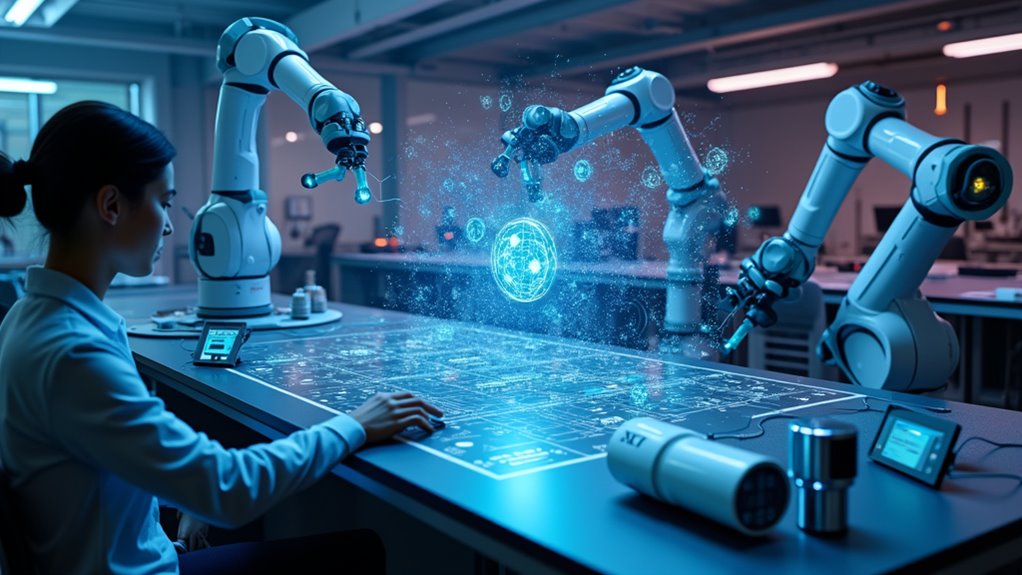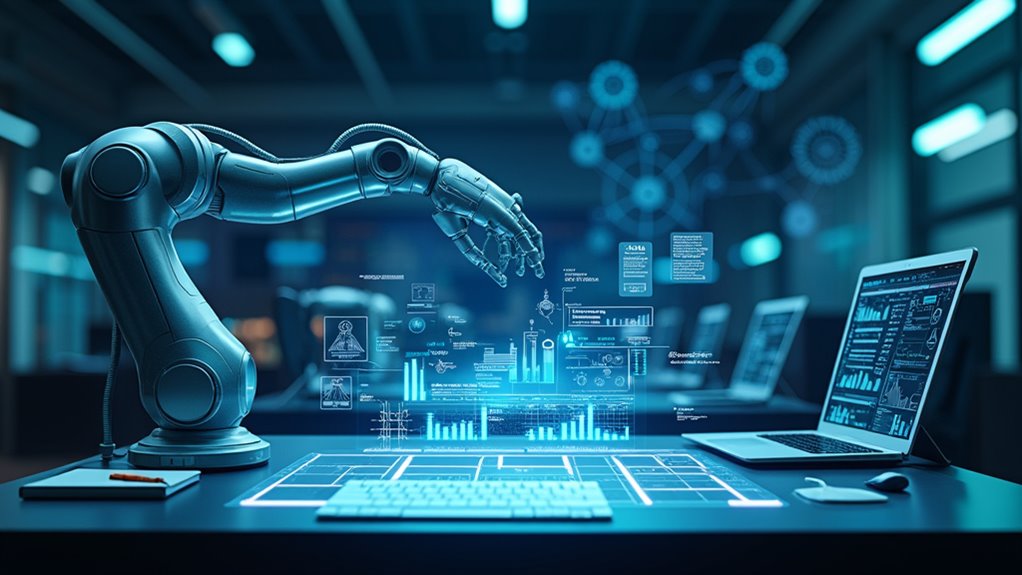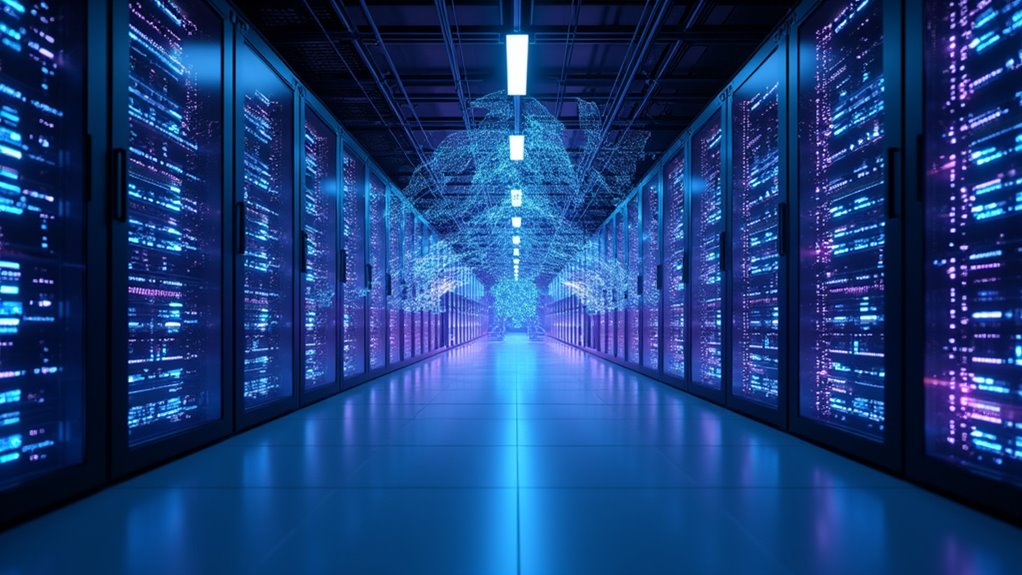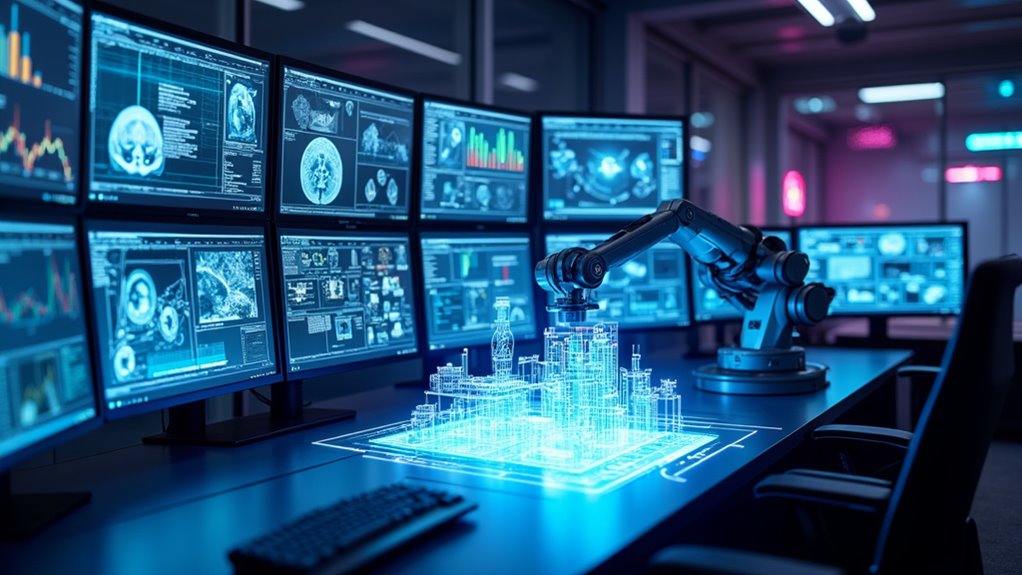AI isn’t just stealing jobs—it’s creating them too. While 75 million positions may vanish by 2025, expect 133 million new roles to emerge. Machine learning engineers, AI ethicists, and human-AI collaboration specialists are booming careers. Companies desperately need people who understand both technical frameworks and uniquely human skills like creativity and ethical judgment. Your future job? Teaching robots to think without being jerks. The employment landscape is transforming faster than you might realize.

As artificial intelligence reshapes the global workforce, a paradoxical employment landscape is emerging—one that simultaneously threatens millions of jobs while creating entirely new career paths. Experts predict between 20-50 million new jobs globally by 2030, even as significant displacement occurs in routine-task industries. This isn’t just theoretical—it’s happening now, with companies desperately seeking professionals who can harness AI’s potential.
The most vibrant growth areas involve human-machine collaboration, where people work alongside AI rather than being replaced by it. AI trainers are becoming essential, teaching systems to recognize patterns and make decisions that align with human values.
Got technical skills? Machine learning engineers are commanding premium salaries as they design algorithms that power everything from recommendation engines to medical diagnostics. Ethical considerations aren’t an afterthought—they’re a career path. AI ethicists now guarantee systems avoid bias and respect privacy, a job that didn’t exist five years ago.
Healthcare professionals are witnessing AI transform their field, with new roles leveraging AI for improved diagnostics. Manufacturing workers aren’t simply being displaced; they’re evolving into specialists who maintain and direct increasingly intelligent machinery.
Financial institutions can’t hire enough data analysts to develop their AI capabilities. Since ChatGPT’s launch, job postings requiring generative AI skills have exploded twentyfold. While AI may displace 75 million jobs by 2025, it’s expected to create 133 million new positions, resulting in a net gain of 58 million jobs globally. Implementing targeted upskilling programs can help companies identify and train top performers for these emerging roles. Don’t ignore this trend. Companies worldwide are competing for talent to maintain industry leadership, and the skills gap is widening.
Future-proof your career by developing technical competencies in data preprocessing and deep learning frameworks. What makes these positions distinctive is their emphasis on uniquely human abilities: creativity, problem-solving, and ethical judgment. These skills can’t be automated away.
The future workforce will still be human—just augmented by powerful AI tools. The most successful professionals will be those who understand not just what AI can do, but where its limitations require human intervention and guidance. Developing emotional intelligence will become crucial as we navigate this evolving relationship between humans and technology.
Frequently Asked Questions
How Will AI Impact Job Security in Traditional Industries?
AI will considerably disrupt traditional industries, accelerating job displacement across manufacturing, retail, transportation, and administrative sectors.
Companies aren’t waiting around—23% have already cut headcount due to AI, with 43% planning cuts soon.
Industry transformation hits hardest in sectors relying on routine tasks.
While AI creates new opportunities in tech and healthcare, workers in traditional roles face stark choices: adapt through upskilling, shift to emerging fields, or risk obsolescence.
The clock is ticking.
What Educational Paths Prepare Students for Ai-Adjacent Careers?
Educational paths for AI-adjacent careers typically combine technical and domain-specific knowledge.
Students should pursue degrees in computer science, statistics, or specialized programs that integrate machine learning with industry applications. Community colleges now offer data science certificates, while universities provide interdisciplinary majors.
Hands-on projects, internships, and online courses from platforms like Coursera complement formal education.
Will AI Roles Require Technical Programming Skills?
AI roles span a spectrum of programming requirements.
Traditional positions like machine learning engineers demand fluency in programming languages like Python and specialized frameworks.
However, emerging roles—think prompt engineers and AI product managers—prioritize conceptual understanding over coding prowess.
The field increasingly accommodates varying skill levels, from deep technical specialists to strategic thinkers.
While programming knowledge remains valuable, it’s no longer the exclusive gateway to the AI industry.
Adaptability matters more than perfect syntax.
How Are Salaries for AI Specialists Compared to Traditional Roles?
AI specialists typically earn considerably more than their traditional counterparts.
Industry salary trends show AI professionals commanding 21% higher wages than average positions. The competitive landscape values specialized expertise in areas like machine learning and NLP, pushing salaries between $80,000-$172,100 globally.
Meanwhile, traditional IT roles often lag behind. Location matters tremendously—tech hubs pay premium rates.
The gap is widest in sectors like finance and healthcare, where AI expertise delivers measurable ROI.
Can Mid-Career Professionals Transition Into Ai-Focused Positions?
Mid-career professionals can absolutely shift into AI-focused positions, though it requires deliberate skill adaptation.
The data shows it’s challenging—hiring managers favor the under-35 crowd—but not impossible.
Career shift success hinges on leveraging existing expertise while developing AI capabilities through self-teaching or formal training.
The advantage? Mid-career folks bring valuable real-world experience that, when combined with AI skills, creates a powerful package employers increasingly need.
Don’t wait—start upskilling today.









